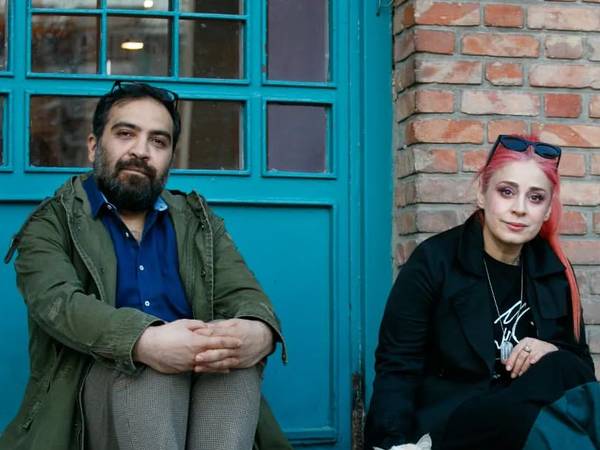The Iranian makers of My Favorite Cake, a critically-acclaimed film about a widow's search for companionship, have been summoned to a revolutionary court in Tehran over multiple charges including violation of public morality and ethics.
The film tells the story of a woman striving to live out her desires, including for intimacy, in a country where women's rights are heavily restricted.
Maryam Moghaddam and Behtash Sanaeeha have been summoned to Branch 26 of the Tehran Revolutionary Court, according to separate summonses they shared on Instagram, and are set to stand trial on March 1.
Moghaddam and Sanaeeha have been charged with propaganda against the Islamic Republic, producing, distributing and screening a film with obscene content, violating public morality and ethics and screening a film without a proper exhibition license.
The indictment cites their roles as producers, writers and directors of My Favorite Cake, accusing them of attempting to screen, distribute, and reproduce the film, which authorities say constitutes grounds for legal action.
The couple had previously been barred from attending their film's premiere at the Berlin Film Festival last February. They were set to attend the Swedish premiere in September when they found out that they cannot leave.
British newspaper The Guardian's named My Favorite Cake 2024's second-best film.
At Berlin Film Festival, the film won the Prize of the Ecumenical Jury Competition and the FIPRESCI Prize. It also won the Chicago Film Festival's Silver Hugo for in the New Directors Competition.
The film is just one of an increasing number of new Iranian films being produced without the Culture Ministry's permission in defiance of the country's strict ideological censorship and hijab regulations for actresses.
Many filmmakers are bypassing regulations requiring them to obtain approval at various stages of production, from screenplay inception to final screening and entry into international film festivals.
These new independent films challenge compulsory hijab rules, depicting Iranian women without the mandated head covering. This defiance has grown, especially following the 2022 Woman, Life, Freedom protest movement.
